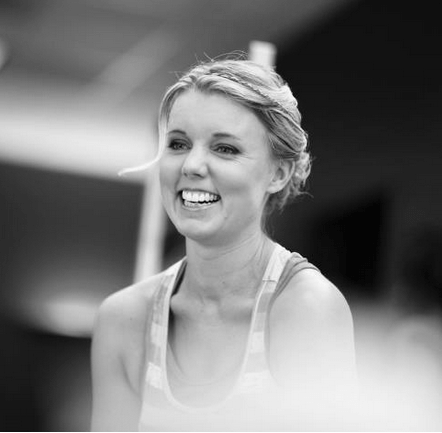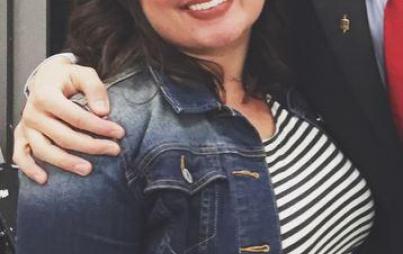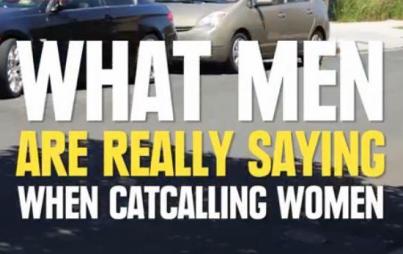
If you like whip-smart, deeply analytical essays on Hollywood and celebrities, you probably already read Celebrity Gossip, Academic Style, Anne Helen Petersen's blog. Up until recently, Petersen was a hard-working professor at Whitman College in rural Walla Walla, Washington, making a name for herself in academia with a high-brow-meets-low-brow approach to media studies. It's her latest move, however, that propelled her to wider recognition. Leaving everything behind, Petersen moved to NYC and is currently a features writer for Buzzfeed, a website that prides itself on clickable lists and quizzes. Her love for elevated Hollywood discourse didn't wane, however. Scandals of Classic Hollywood, her first book, is coming out in September. We caught up with Petersen and asked her about academia, her new urban life and her favorite gossip websites.
You wrote a book about classic Hollywood scandals (to be published by Plume this September). What drew you to this subject?
I've been interested in classic Hollywood stars for many years—ever since I first started watching the films back during my first year in college (and eventually became a film major). At some point during my graduate career, I started reading some really great theory about how scandal functions within a star's image, how it can function as a remarkable indicator of ideologies under threat or duress. (My favorite book on the subject is called Headline Hollywood— it's just filled with superb case studies).
Who should read this book?
Oh, there are so many target audiences! Obviously people who are fascinated with classic Hollywood will like it, but so will anyone who likes a smart, engaged take on why pop culture phenomena happens the way it does. Anyone who's ever thought about how stars are made—and destroyed. Grandmas, teenagers, everyone!
You made a huge leap from academia to Buzzfeed and from Walla Walla, Washington, to New York City! How did you make these decisions?
As I said in the interview I did for The Hairpin, it wasn't like I was out there looking for non-academic jobs. I honestly couldn't find an academic home. I tried really hard. I applied for over 50 jobs. I made the final round at several. I had a packed C.V., including a dozen articles in peer-review journals. But the sort of work I do is hard to sell to a dean of students—they often view it as trivial, even though what I do is try to show the ways in which seemingly trivial things like celebrities and gossip actually communicate much larger ideas about society and ideology. When I couldn't find a job in academia, I started to look into the mainstream publishing sphere—very tentatively—and a number of opportunities presented themselves. As I said before, I needed a way to survive. I needed a paycheck. And BuzzFeed promised to allow me the dexterity and freedom to write what I wanted—and pay me a livable salary. I feel tremendously lucky.

Great question! Before, I was basically working two full-time jobs: I was a professor, but I was also freelancing like crazy. I worked all the time. On a weekday, I'd wake-up, spend all day in the office prepping for classes, grading, writing, and then teaching, and then I'd come home and spend more time doing the same. Same went for weekends. I was completely in control of my schedule, but I was working constantly. Now I'm just doing one job, and I work from 10-6 every weekday in a wonderful office here in New York where I get to hang out with people doing weird and innovative stuff and gorge on the snack room and the fro-yo machine. I work a bit on weekends, in part because I can't help but write when I watch something that I love, but I have a much more sane and healthy schedule.
Where do you usually get your pop culture fix? What are some of your favorite websites and magazines?
I'm a media omnivore! I really try to watch and read and listen to everything that people are talking about so that I can be part of those conversations. I'll try anything once. But I really love all of Grantland's podcasts (Girls in Hoodies, Hollywood Prospectus, Do You Like Prince Movies), and I regularly read The Hairpin and The Toast (two of the places that first published me), and Lainey Gossip, which I think is publishing the smartest "gossip" on the web. I have a 35 minute subway commute, so I've been using that to read all the trumpeted longform pieces of the week and all manner of books (I've read 10 in the three months I've been here in New York).
Since leaving academia, you have had some pretty strong opinions about the harsh financial reality of being a grad student and the challenges of securing a position in the academic job market. What tips do you have for someone thinking of seeking a job in academia?
If it's not legitimately and fully funded, don't do it. I have a mountain of debt, and I honestly don't regret my PhD, but I simply did not realize—and no one ever told me—the realities of the academic market, in part because when I started (in 2005) they were not what they are today. I thought that if I worked really, really hard, I would get a job—and that's just not the case. I'm not trying to say "hey, I did this thing, now you don't do it!" so much as encourage everyone to think at length (and talk to a lot of people who have been through the system) about the economic realities.
How do you find ideas for your Buzzfeed articles?
They come from everywhere! I always have a few ideas that I'm working through, and it's really a matter of which one is next, and the scope that it'll take. Sometimes a piece wants to be 3000 words, sometimes it wants to be 8000 words. The topic dictates how long and in depth it'll be.
And finally, how is New York treating you? Do you miss Washington? How are these locations different?
I love it. New York bewitches people. It's the speed, the energy, the way that so many of the people you encounter came here to do something. A lot of people assumed that it'd be some huge change for a "country mouse" like me, but I've moved to so many places in the last ten years that adapting to new situations has become really easy and pleasurable. I have a great apartment in an area of Brooklyn that I love. I love going to work every day and I feel ridiculously supported. It's really the best case scenario, and I can't wait to see what the next year will bring.






